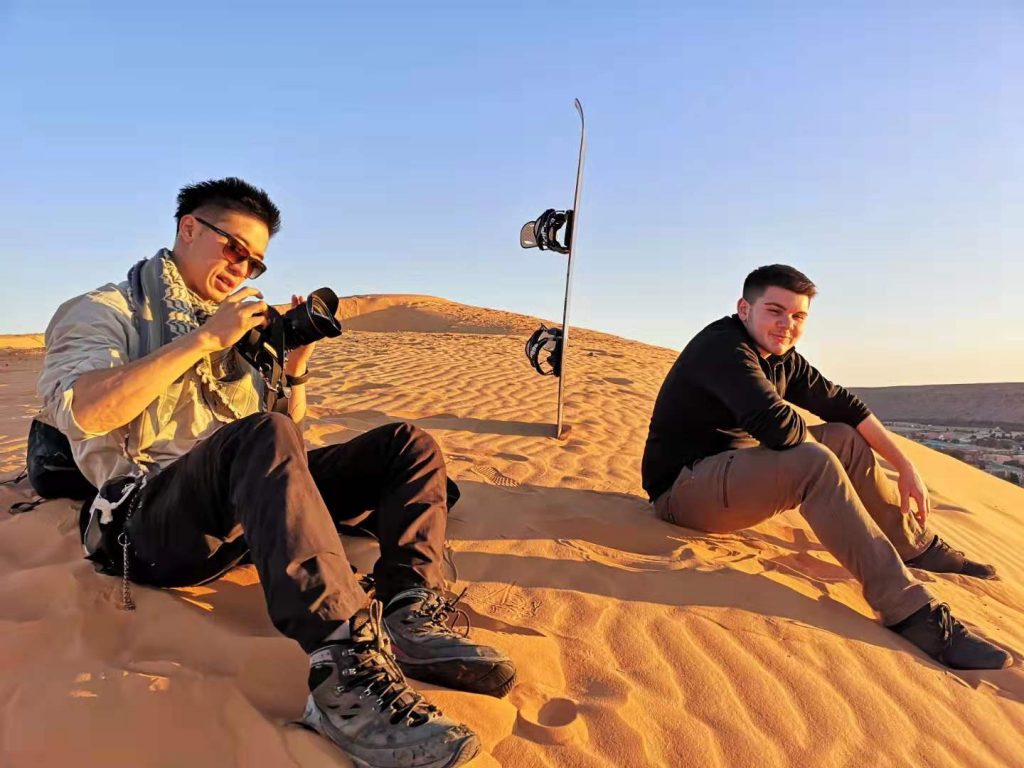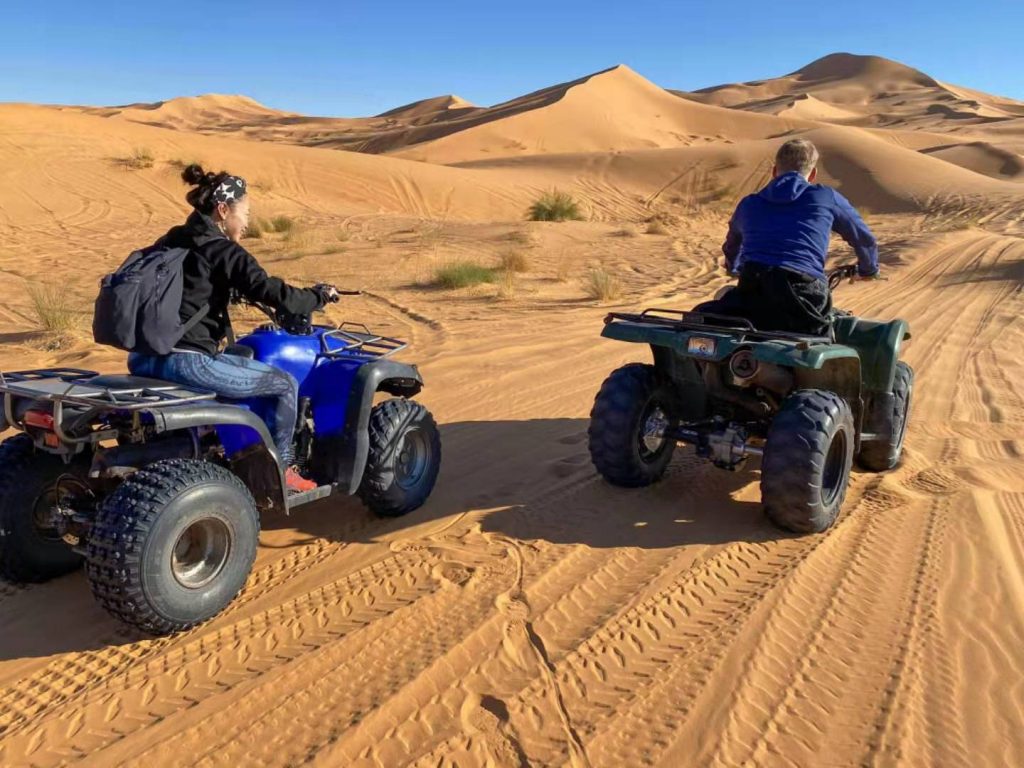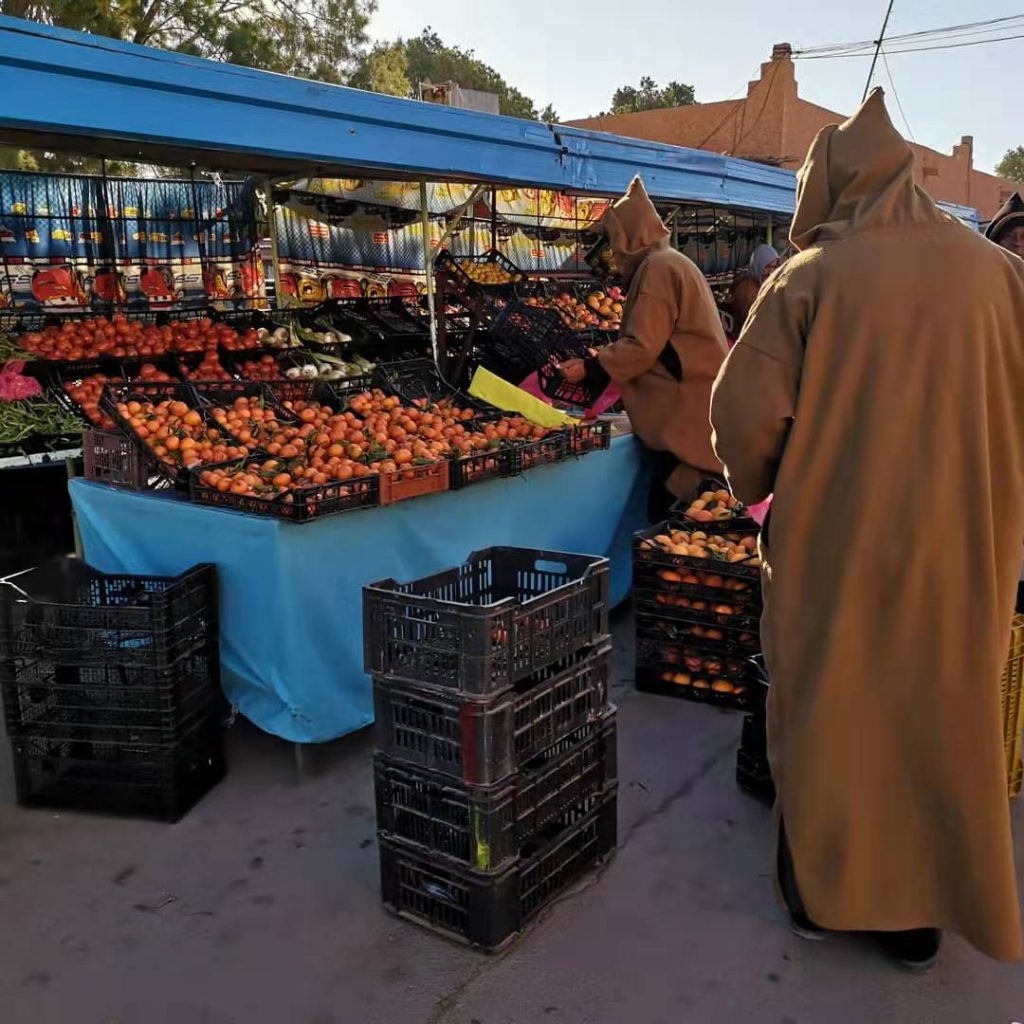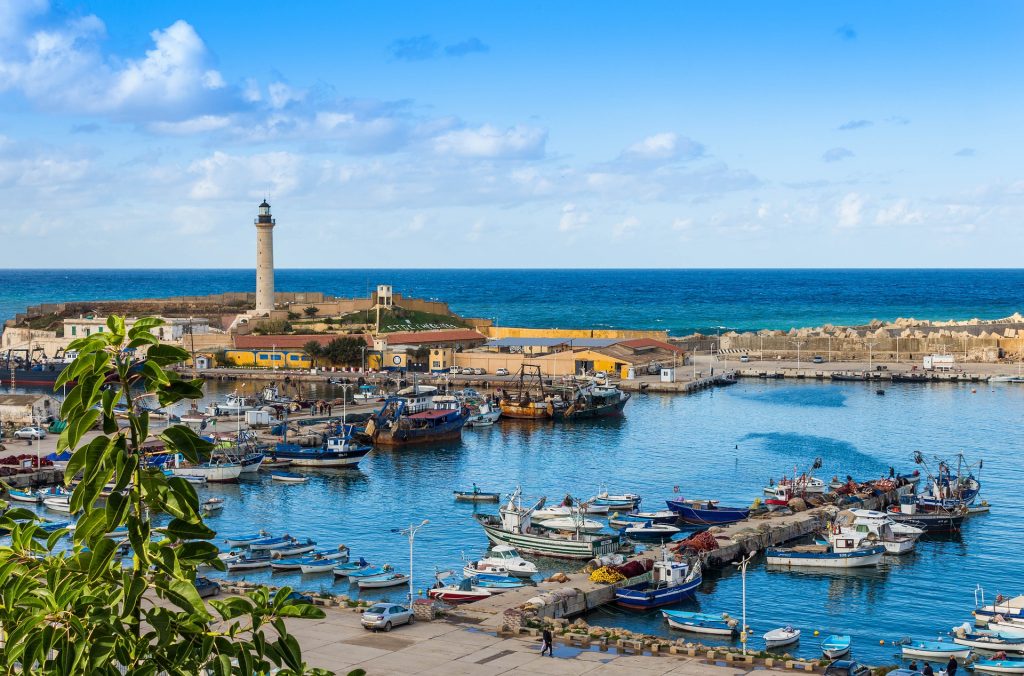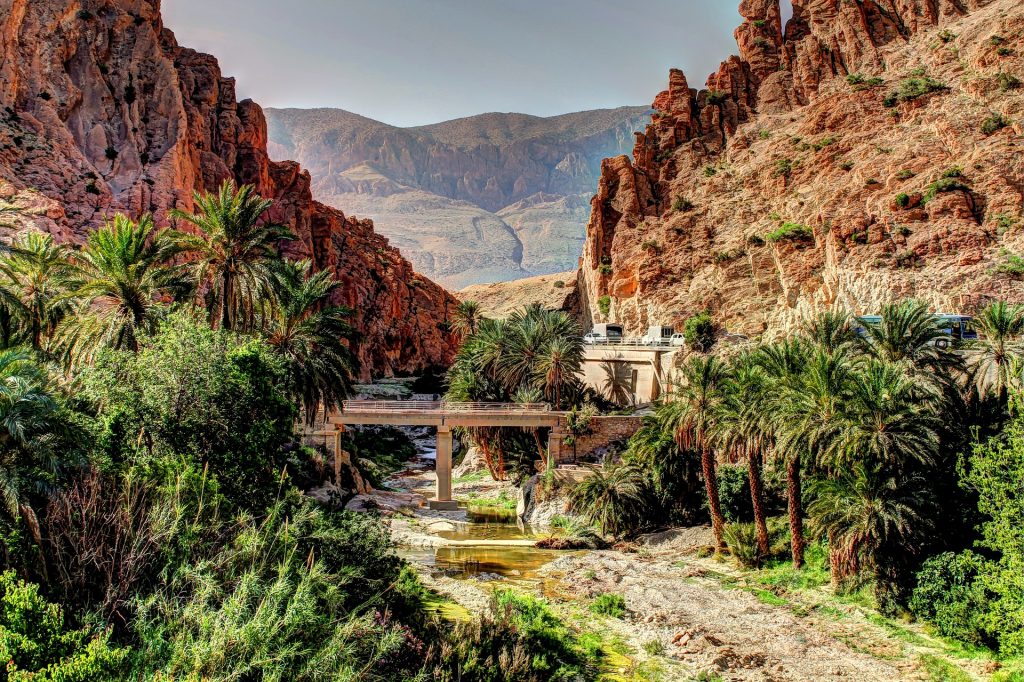After many years of being closed to tourism, this hidden gem of North Africa is finally open for tourism.
We are very excited to now be offering group and private tours to this incredible destination!
Group Tours to Algeria
Saharan Odyssey: Algeria Tour – January 10th-17th 2026 €1695
Our small group tours to Algeria include all of the best sites to see in this marvellous gem of the Sahara!
The North of this little-understood country is marked by a magnificent coastline, mountains dotted with snow and lush pine forest. It is also home to some of the most charming cities in Africa, Algiers and Constantine. Some of the best-preserved ruins of the Roman Empire that still exist today are also found here and beg to be explored in their entirety with very few if any other tourists around.
In the South of the country, the landscape is dominated by the vast Western Sahara Desert full of small oasis towns, each with a charming architecture defined by red mud-brick houses and a local population curious to show what very few visitors they receive around their country.
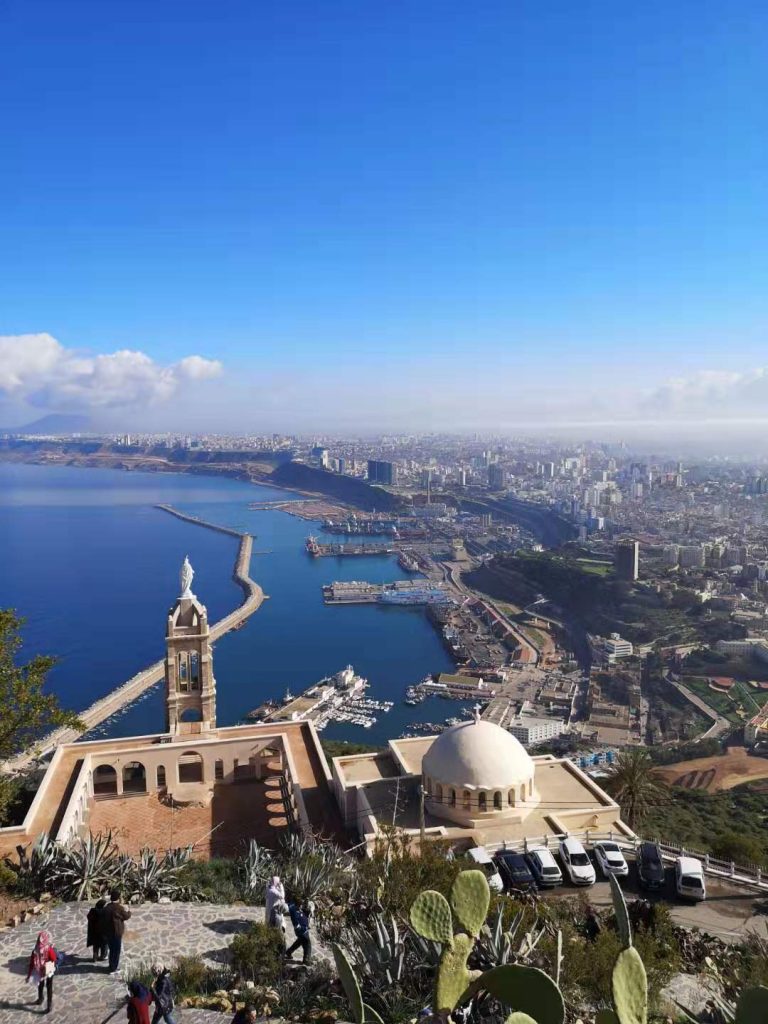
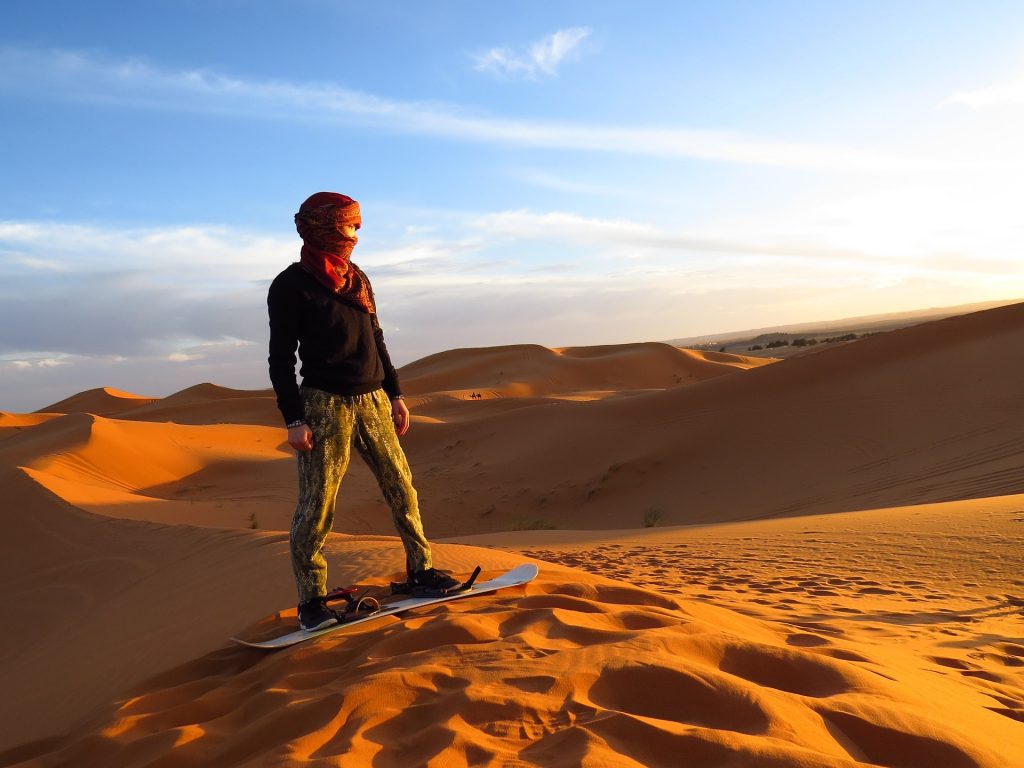
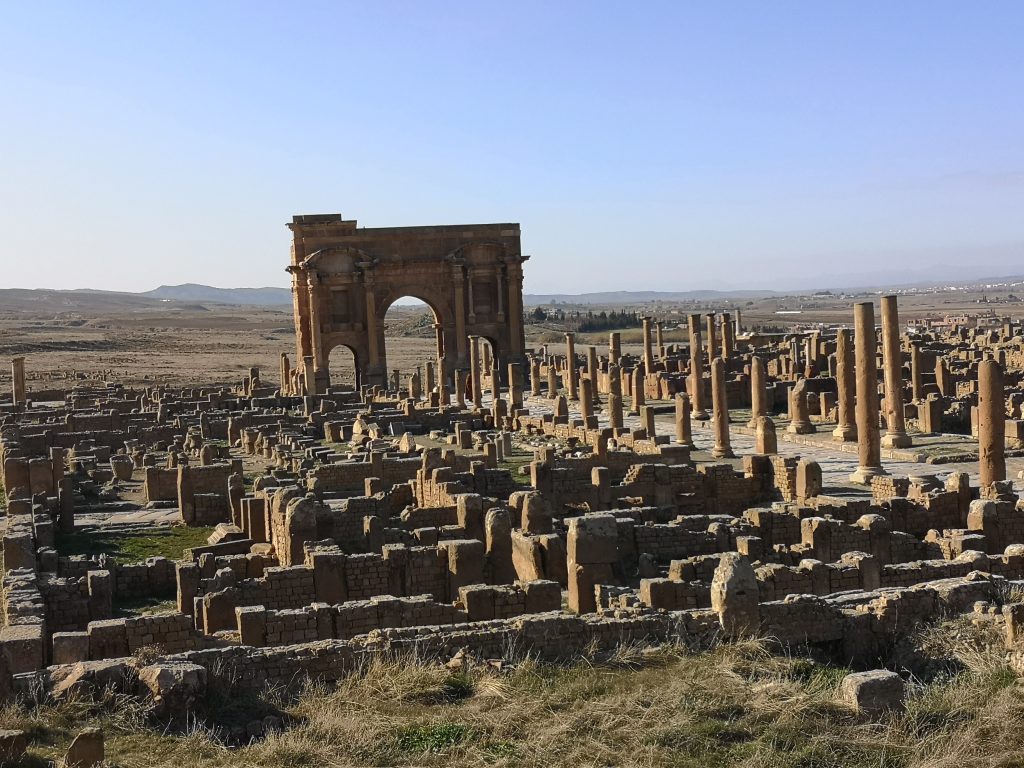
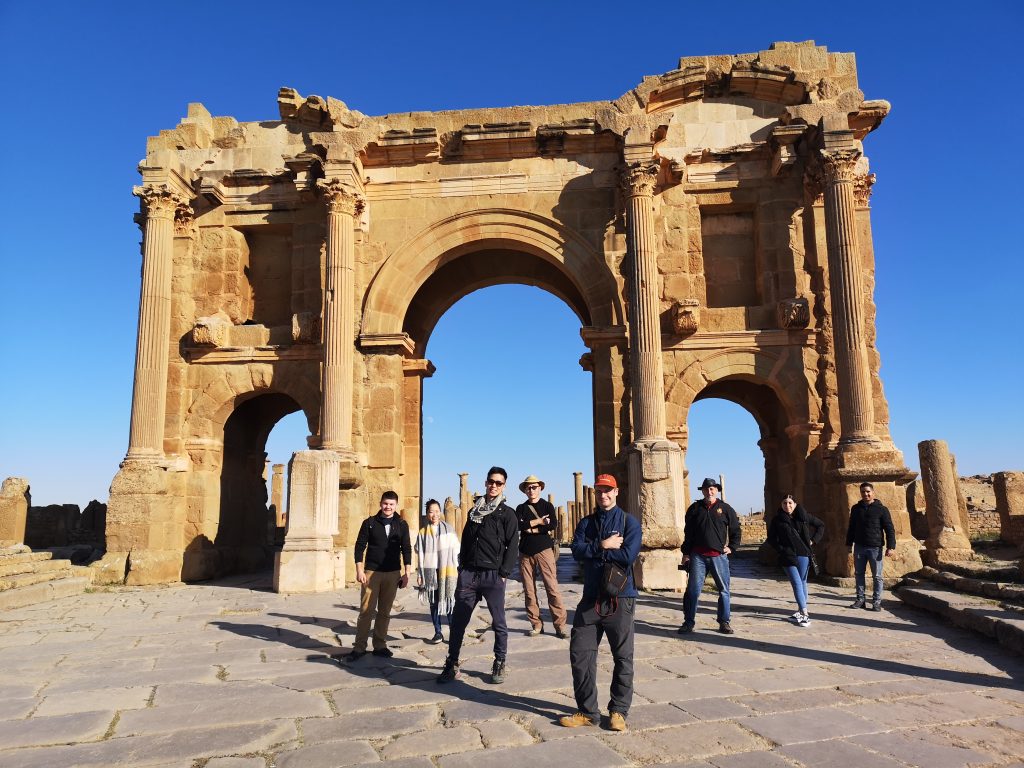
Independent Tours to Algeria
If a group tour does not fit your calendar, you require something more specific for yourself or group then YPT can arrange a bespoke Algeria tour for you.
At YPT, we are connected with and employ some of the best guides available in the country. All of our local partners can provide bilingual guides who are not only passionate about what they do but have extensive knowledge about the country that they are eager to share with visitors.
Example of an Algeria Itinerary
Day 1 – Algeria
- Arrival at your convenience into the capital Algiers – a dazzling cultural mecca which is also the largest and the capital city of Algeria.
- Meet our driver at the airport and transfer to our hotel
- Head out for dinner and get a glimpse of the famous bars, discotheques, and dance halls around while exploring the nightlife of Algiers.
- Overnight at ABC Hotel
Day 2 – Algiers – Constantine
- Breakfast at hotel and head out for a full-day tour of the city. Don’t forget to wear light clothing and comfortable walking shoes or sandals. The narrow streets of Algiers make travelling by car difficult at times and must be done on foot.
- Explore the Casbah of Algiers – a UNESCO World Heritage Site and repository of Algerian culture and history. The remains of the citadel, old mosques and Ottoman-era palaces will bring you back to the ‘glory days’ of ancient Algeria.
- Visit the Palais des Rais – a shining symbol of Moorish architecture otherwise known as Bastion 23. One of the last remnants of the Ottoman rule.
- Stop by the La Grande Poste – constructed in 1910 it is still Algeria’s largest post office building.
- Lunch at the Lalla Mina – a restaurant best known for preparing dishes in the most traditional Algerian way. Famous for its couscous, harira soup, and lamb brochettes, among other dishes.
- Head to the Botanical Garden of Algiers, back then known as the Test Garden of Hamma – built in 1832 the park hosted a model farm to showcase what Algeria was capable of growing in its unique climate.
- Visit the Museum of War and Monument of Revolution – commemorating the Algerian War, the struggle for independence from France. The monument was opened in 1982 on the 20th anniversary of Algeria’s independence. It represents the shape of three standing palm leaves, each with a statue of a soldier underneath it as it protects the eternal flame.
- Visit the Museum of Fine Arts – a vast collection of the finest Algerian artworks and European paintings that date back to the 14th and 20th century.
- Dinner in Algiers before heading to the airport to board our 1 hour domestic flight to Constantine – Algeria’s third largest city.
- Transfer to our hotel and overnight in Constantine
Day 3 – Constantine – Djemila – Constantine
- Breakfast at hotel and depart to start our 2 hour journey along Algeria’s iconic highways to the picturesque mountain village of Djemilla.
- Here you’ll explore the Djemila Roman ancient city ruins – a UNESCO World Heritage Site where one of the world’s best-preserved Roman temples, basilicas, arches, and streets are to be found. This will give you better understanding of what the influence the Roman Empire had as they conquered Algeria from 160BCE to 430CE.
- Visit the Djemila Museum for a further look back in history with greater explanations of the era. Here you’ll see extraordinary archaeological wonders and relics excavated from the site and nearby areas.
- Lunch at a nearby restaurant and return to Constantine
- On arrival we’ll freshen up at the hotel and head out for dinner to explore the nightlife of the city
- Overnight in Constantine
Day 4 – Constantine – Algiers
- Breakfast at hotel and begin our city tour exploring Constantine – also known as the City of Bridges.
- Our first stop of the day will be to visit the Ahmed Bey Palace – one of the finest Ottoman-era buildings in Algeria. A majestic palace filled with courtyards, gardens, and orchards. Expensive tiles crafted in Algeria and France decorate the building.
- Walk over the iconic Pont de Sidi M’Cid – a 164 metres long suspension bridge across the Rhummel River. Built by the French and it was the highest bridge in the world from 1912 to 1929.
- Stop by the Monument aux Morts – a memorial that honours the city’s dead from World War I. More than 173,000 Algerians fought in World War I under the banner of France, with many of them taking part in the Battle of Verdun and other well-known battles of the war. Sadly, more than 36,000 of these Algerian soldiers perished during the war.
- Visit the monument of the dead, which was built after the First World War.
- Lunch at El Khaimah – one of the top restaurants in Algeria, known for its excellent service and food. The restaurant offers a wide selection of local wines and dishes. Méchoui, or spit-roasted lamb, is among the best you will ever find in the region.
- Visit to the Great Mosque of Constantine constructed in 1135CE.
- Walk along the Medina located in the heart of the old Constantine – a place full of life and merchants selling traditional street food and sweets.
- Stop by to explore the Emir Abd El Kader Mosque – the second largest mosque in the country.
- Dinner in Constantine before heading to the airport for the domestic flight back to Algiers
- Check into the hotel, and for those with the energy we’ll head out for a night in Algiers
- Overnight in Algiers
Day 5 – Algiers – Ghardaia
- Breakfast at our hotel and drive 1 hour to Tipaza to further explore the Roman ruins. Tipaza was an old Punic trading post conquered by the Romans. It was subsequently turned into a military colony by the emperor Claudius for the conquest of the kingdoms of Mauretania. It is one of the most famous ruins in all Northern Africa.
- On the way we’ll grab a coffee break along the Mediterranean coast to take in the view.
- Visit the distinguished Archaeological Museum of Cherchell which houses some of Algeria’s finest sculptures and mosaics.
- We’ll grab lunch at one of the most scenic spots not only in Algeria but along the Mediterranean.
- Explore the remaining roman temples, including the tomb of Cleopatra Celina who was the only daughter of Queen Cleopatra and Mark Antony. This site is exceptionally remarkable not only because of her resting place but her magnificent and imposing tomb that very few tourists know or visit.
- Make our way to the aiport to board a domestic flight to Ghardaia – located in northcentral Algeria in the middle of the Saharan Desert and home to some of Algeria’s most impressive architecture and monuments.
- Arrive and check into our hotel to freshen up
- Head out for dinner and explore the small village
- Overnight at Le Belvedere.
Day 6 – Ghardaia
- Breakfast at the hotel
- Head to M’Zab valley, which comprises of five villages in the heart of the Sahara Desert. This UNESCO site is a photographer’s dream with its unique architecture that is a source of inspiration for today’s urban planners.
- Head to the Ksar of Ghardaia, also called the pearl of the Oasis. No surprise, as this incredible village is nestled between hills. Roaming around, you will feel you have been taken back in time, leaving the modern world behind. This exotic city is a unique place.
- Try local cuisine while admiring the peculiar architecture.
- Next, we head to one of the hidden wonders of Beni Isquen, which has been perfectly preserved since the 10th century. This strictly religious city is a fantastic opportunity to get insight into the formation of heritage in Algeria.
- Stop for tea and visit one of the liveliest marketplaces of Beni Isquen. This is the perfect place to look for an authentic Algerian shopping experience.
- Back to the hotel Overnight at Le Belvedere.
Day 7 – Ghardaia – Algiers
- Breakfast at the hotel
- Go on an adventure through the Desert of Seseb and experience the Sahara Desert in all its glory. From local history, famous cuisine and fun in the dunes, you will feel like a true adventurer. Optional activity: rent quad bikes and hit the dunes!
- We’ll have lunch and transfer back to the airport for our flight to Algiers
- Transfer to our hotel, freshen up, hit the drinking spots of Algiers and enjoy a farewell dinner.
- Overnight in Algiers.
Day 8 – Algiers
- Breakfast at hotel
- Tour concludes with airport transfers – YPT is able to arrange post-tour accommodation or advice for flights out.
Bespoke Algeria Tours
We can organize city tours of most places in Algeria, including, but not limited to:
- Algiers – One of the most amazing cities in Africa, Algiers never fails to make an impression on visitors. The city’s turbulent history is etched into its vibrant and diverse architecture, featuring socialist-era monuments and public buildings, massive French-built wide boulevards that carry the traffic of the city to an ever-enduring Islamic influence. Usually, the city is a hub for travellers to plan further expeditions deeper into Algeria, but there is enough here to enjoy for a couple of days.
- Oran – Algeria’s second-largest city is a port teeming with life and a lot of rhythm. Walking through the streets and admiring the cities incredible French colonial-era architecture, watching the giant port containers being unloaded and just wandering the lazy back lanes of the city to get a vibe for life in this town are our favourite things to do.
- Constantine – Algeria’s third-largest city is home to one of the grandest urban spectacles in the country, created by nature but embellished by man. Over history, the Rhumel River carved out a deep, almost circular, gorge around an outcrop of a rock creating a natural fortress that had been occupied since the Neolithic times. Through generations, Constantine has been a city of massive political, cultural and economic significance.
- Taghit – Taghit is a destination popular with domestic and international tourists alike who come to the area to enjoy the cities historical sites and make the most of the stunning natural environment. Overlooking the city are epic 11th-century ruins partially restored by the government ripe for exploring, and Camels and 4×4 ATVs are available for rent to take you to petroglyphs of cows and antelopes that dot a rock-strewn hillside outside of town.
- Tamanrasset– Located deep in the Algerian Sahara in the city of Tamanrasset. It is a Tuareg Berber oasis settlement where citrus fruits, peaches, apricots, dates, almonds, figs are grown and harvested. Its red houses and inspiring rugged scenery make Tamanrasset a popular tourist attraction and a photographer’s dream.
- Ghardaïa – Located In the river valley of the Oued M’Zab, in a long winding valley on the edge of the Sahara, is an assortment of five unique towns, all with their own character and charms. They are Ghardaïa, Melika, Beni Isguen, Bou Noura and El-Atteuf. Often all referred to as Ghardaïa, and the once distinct villages are gradually sprawling together but also retain many differences making them a pleasure to explore.
- Tindouf – Tindouf is located in the extreme southwest of the country and is very rarely visited by tourists. The city is home to 160,000 people, out of which only 60,000 are native Algerians, the rest being Sahrawis inhabiting the camp due to recent conflicts in Western Sahara. If you make it out here, be ready for a very off the beaten path experience, but with the chance to learn firsthand about some fascinating modern history.
- Timimoun – The biggest oasis in the Grand Erg Occidental, this dusty desert city is sure to capture your imagination. With its character-defining architecture of red-mud buildings and its location at the edge of an escarpment, it provides jaw-dropping views across a salt lake and out to the sand dunes. In the morning and evening, the city’s streets bustle with activity, making it a fantastic place to explore and get to know the diverse mix of locals that include Haratines, Berbers, and Malian merchants and slaves’ descendants.
These city tours come with English-speaking guides, entrance fees and all necessary permits. You just need to tell us your plans and we’ll make them a reality
We can also organize tours to some of the most famous Roman ruins in Algeria such as:
- Djemilla – The small ruined Roman town of Djemila is an impressive must-see site. Full of ancient ruins of vast temples, markets, Roman bath chambers and old streets surrounded by impressive villa walls. We recommend at least a day exploring this site with our local guides bringing the place to life with stories of an era long passed.
- Timgad – One of the most impressive Roman sites still in existence, with ruins that go on for as far as the eye can see. Due to its immaculate preservation, this area has been designated as a UNESCO World Heritage Site. It is easy to spend hours here photographing and taking in the wonders of the ruins.
- Tipasa – An ancient Punic trading-post that was seized by Rome and served as an essential base for their conquest in Mauritania. This site is a unique mix of Phoenician, Roman, Paleochristian and Byzantine ruins, which are complemented by swats of indigenous monuments such as the royal mausoleum of Mauritania.
- Cherchell – Located in the small fishing port of Chercell are the ruins of amphitheatres where gladiators once drew blood, and imposing Roman columns dot the streets of this little port.
Tours of Roman ruins are always conducted with experienced local guides whose knowledge and storytelling abilities will bring the ruins to life around you.
Algeria is certainly undiscovered, and apart from exploring its cities, towns and ancient ruins, there are a ton of activities here that suits any style of traveller. From dune skiing the massive Saharan dunes to making your way through the desert expanse on the back of a camel, to fantastic hiking opportunities for all levels of skill across jagged peaks and lush pine forests or just kicking back on the coast for some rest and relaxation, there is something for everyone here. While planning your tour, let us know your interests, and we will tailor something to your liking.
Filming in Algeria
YPT, through its sister company Pioneer Media, can also provide support for film-makers wishing to use Algeria as one of their filming locations. Through our unparalleled local contacts, we can provide you access to scouting locales for film projects as well as people who are eager to get the ball rolling on the immeasurable amount of potential Algeria has as one of the next hot spots for film production.
FREQUENTLY ASKED QUESTIONS ABOUT TRAVEL TO ALGERIA
Gallery
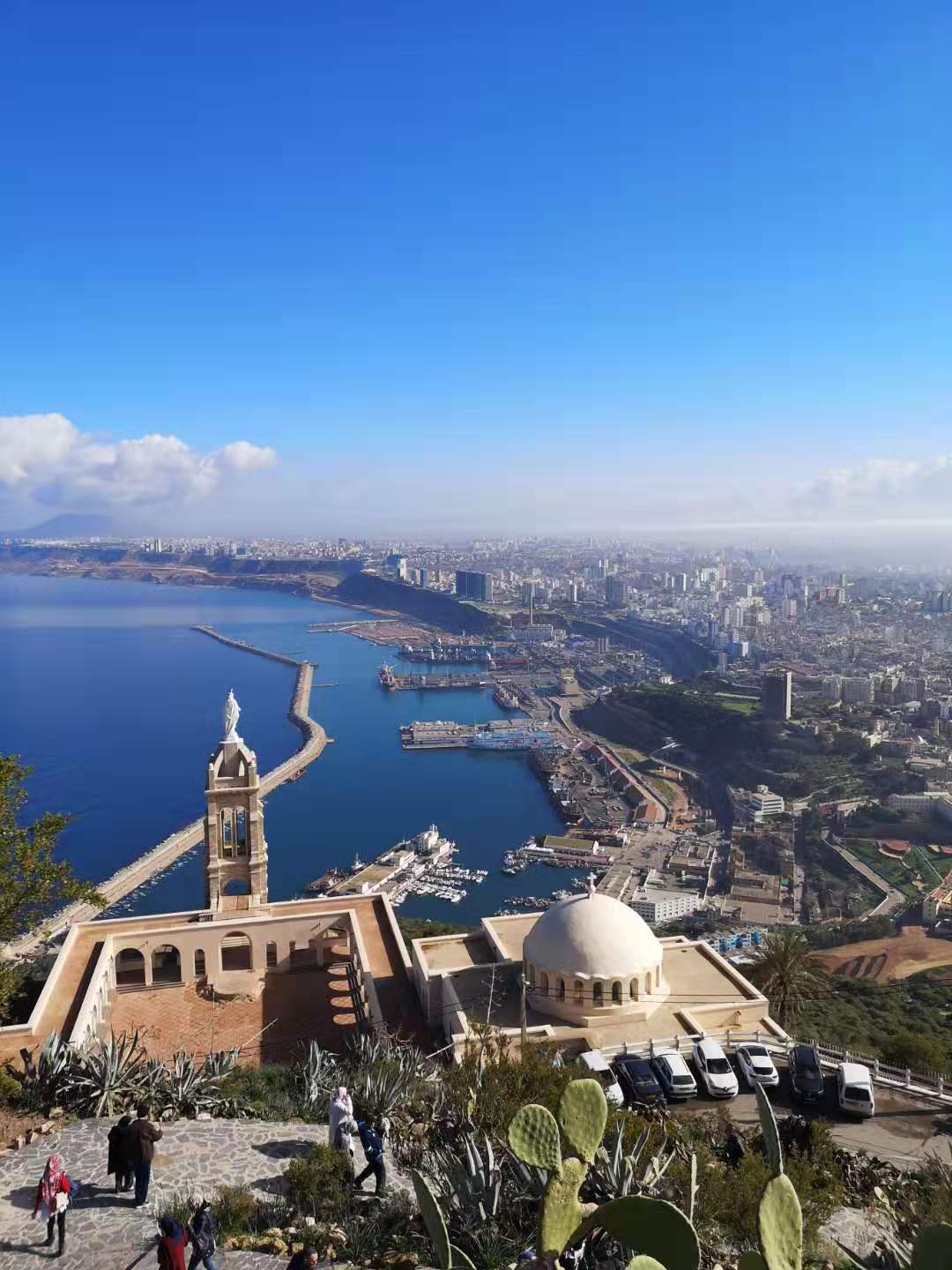
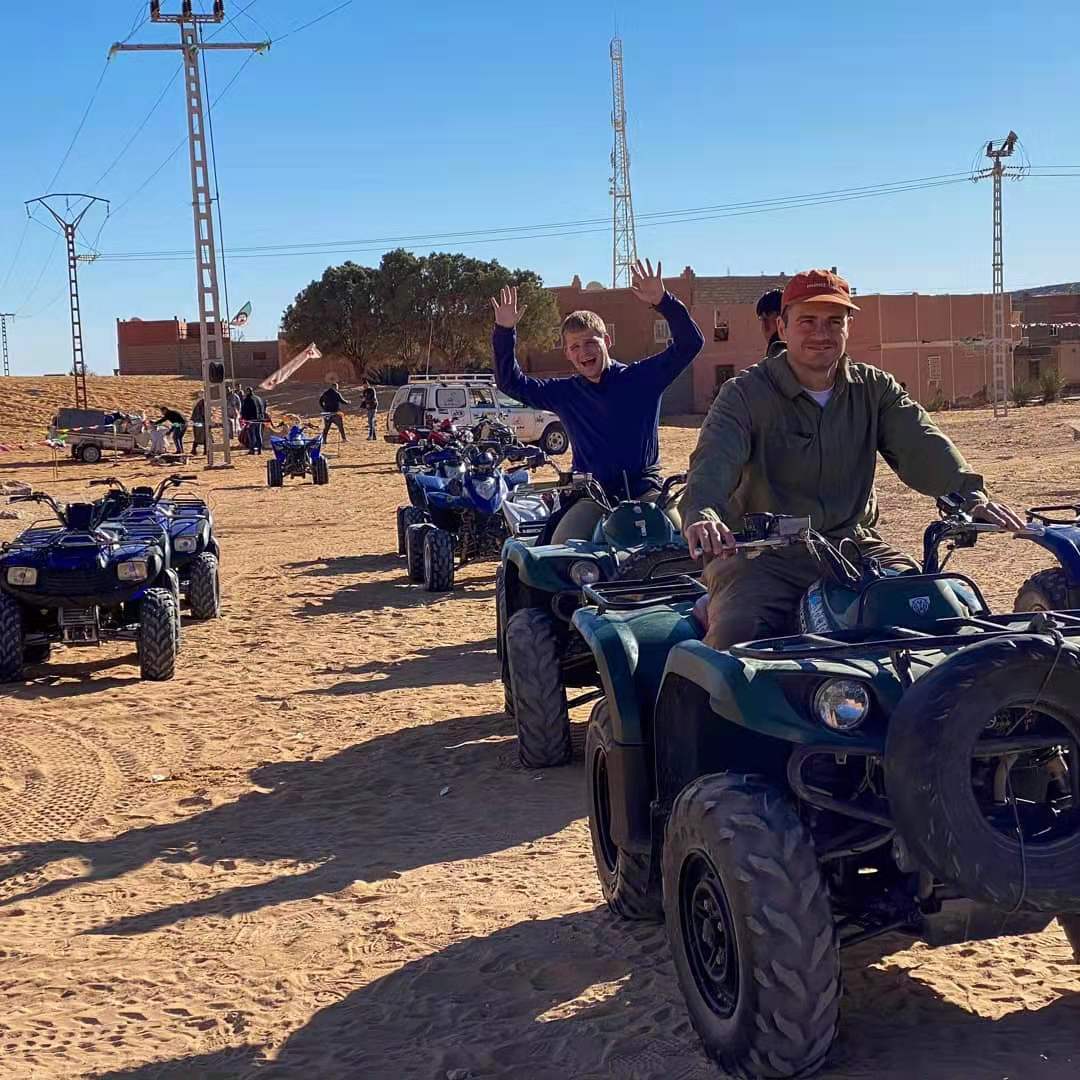
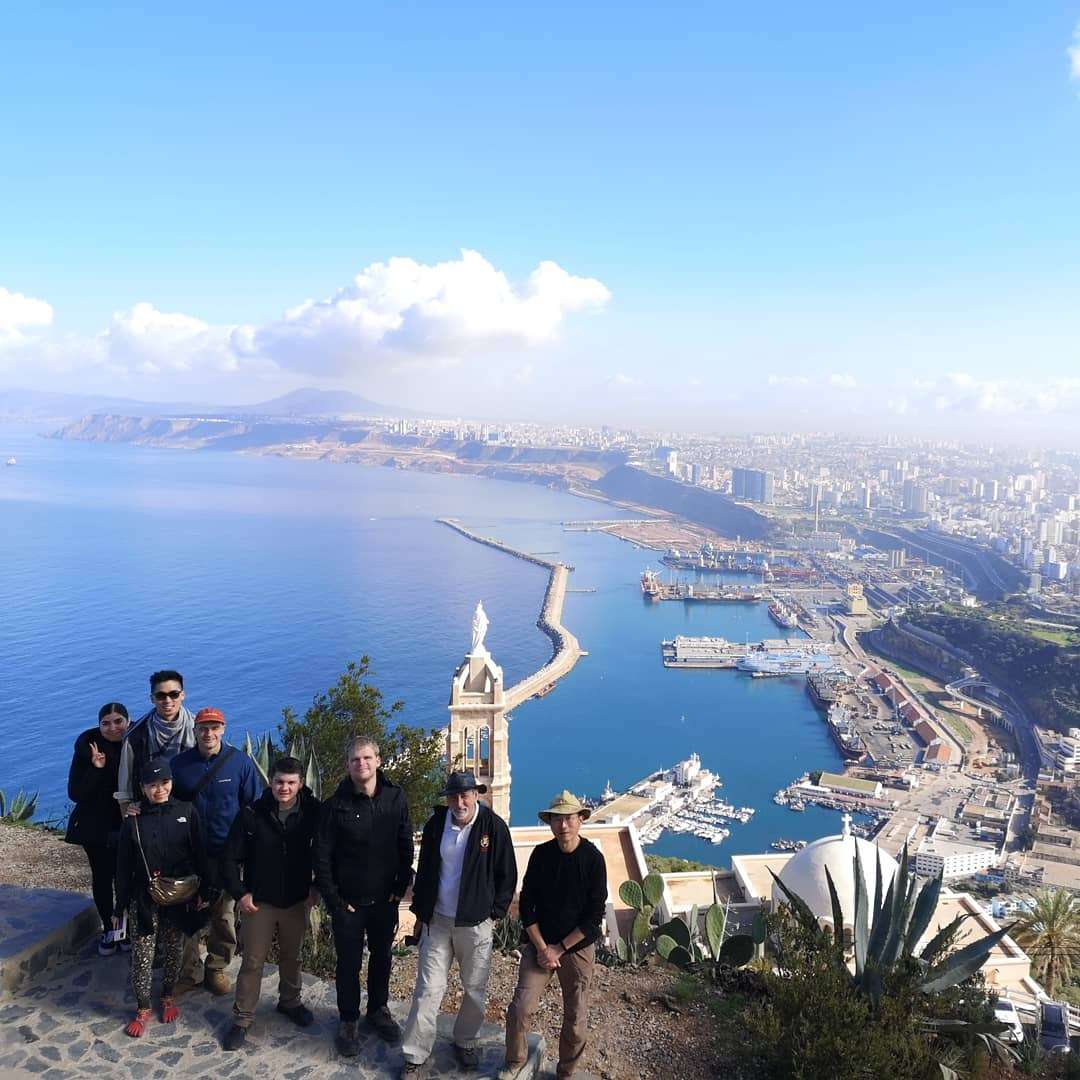
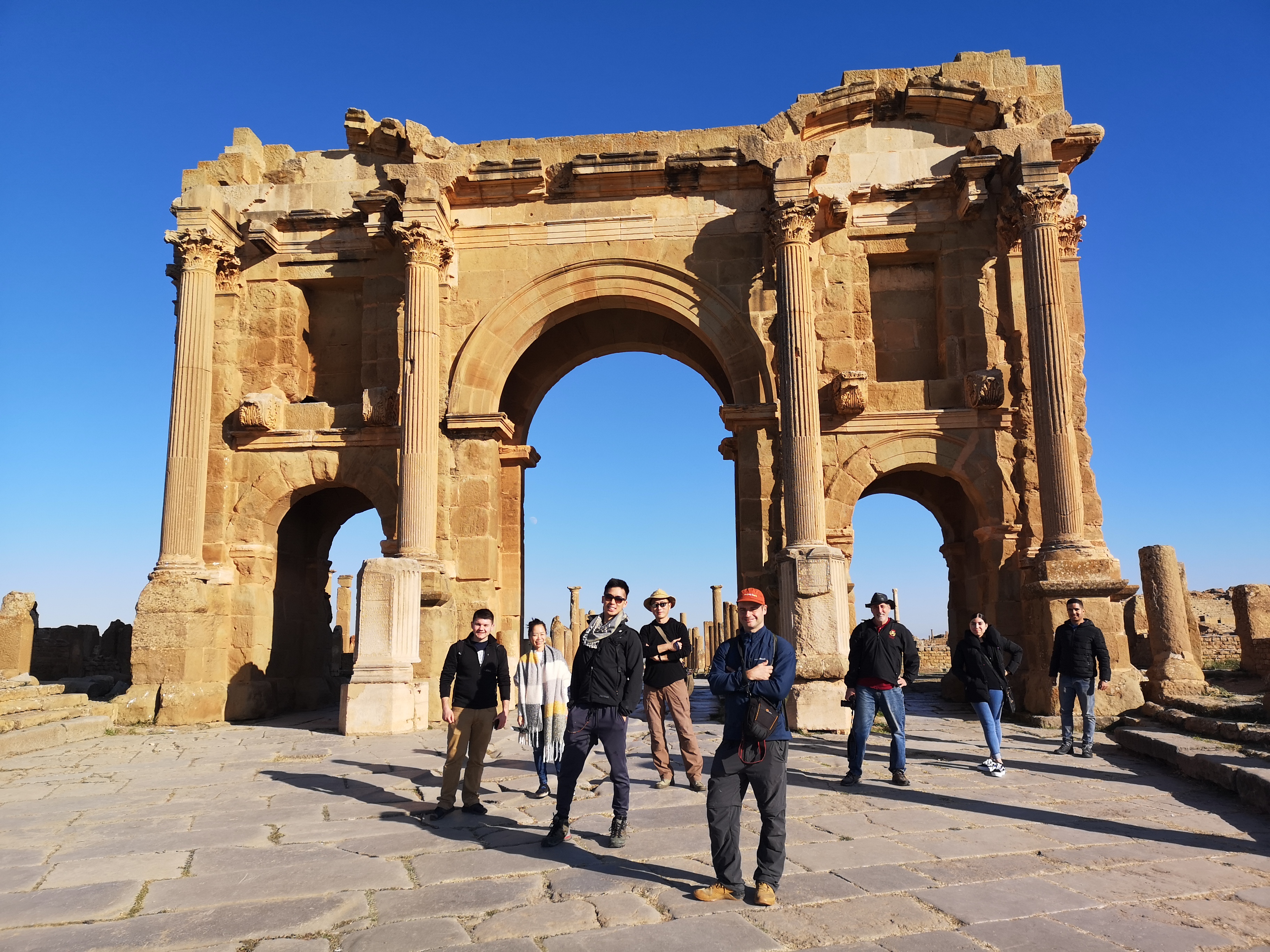
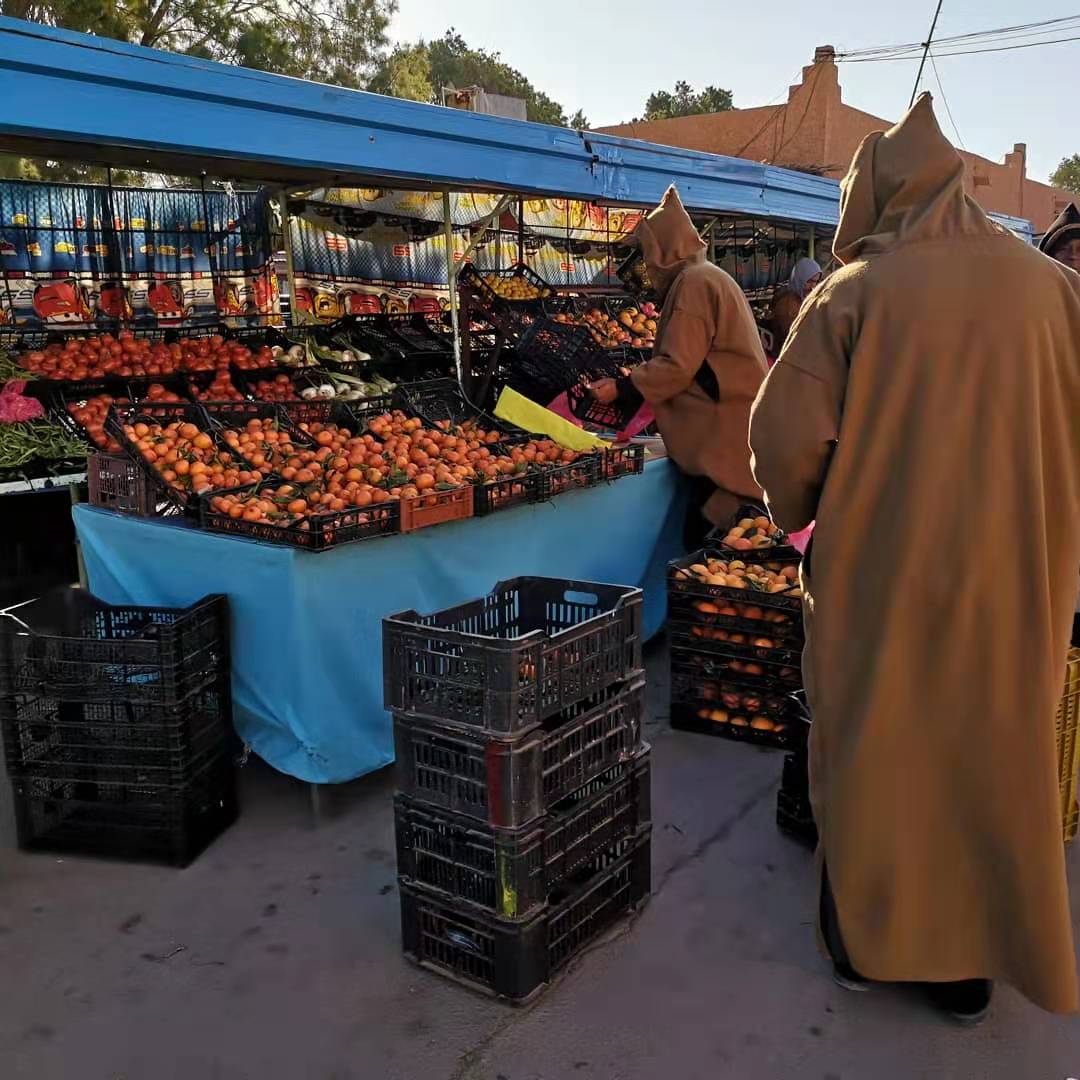
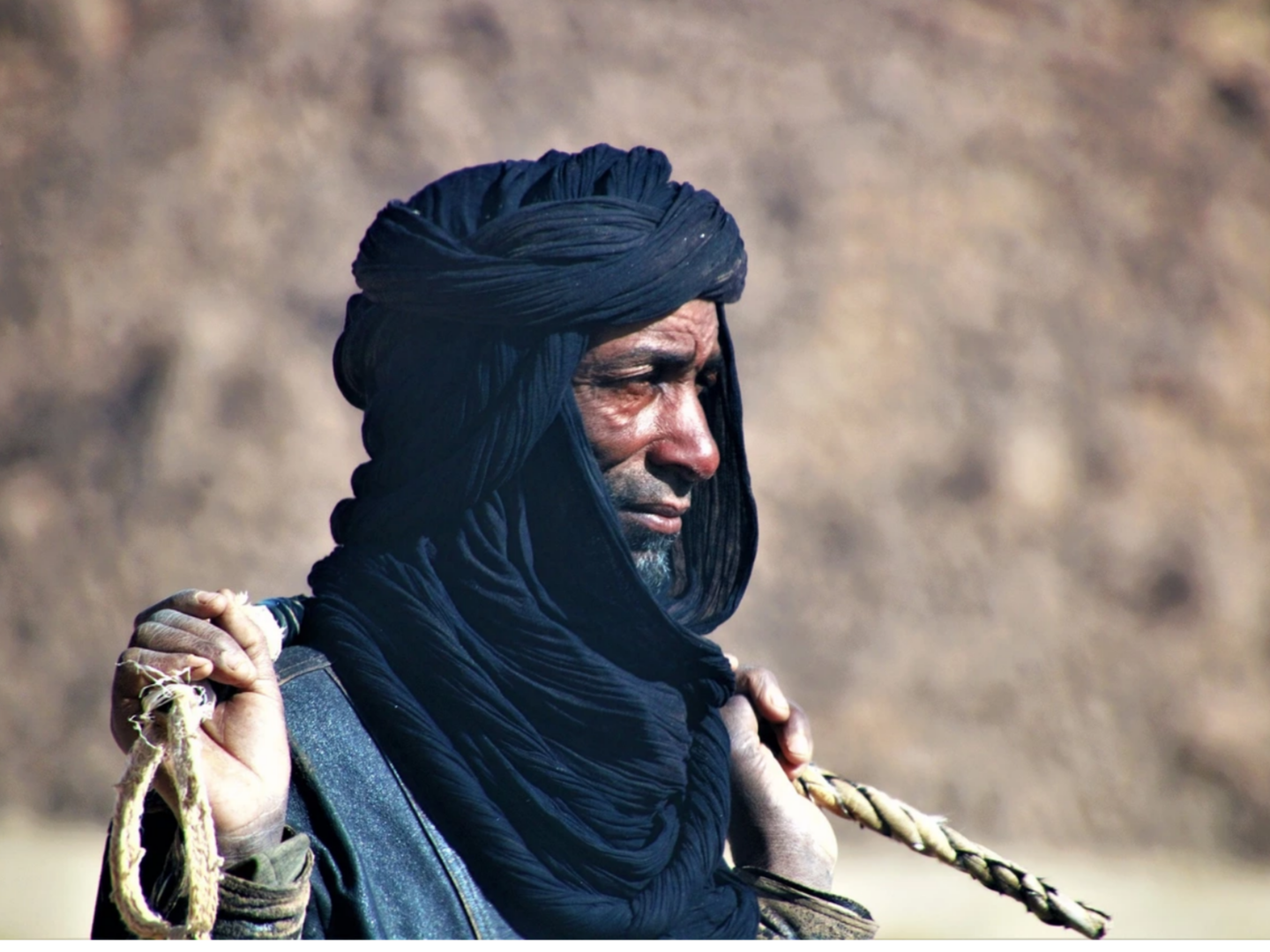
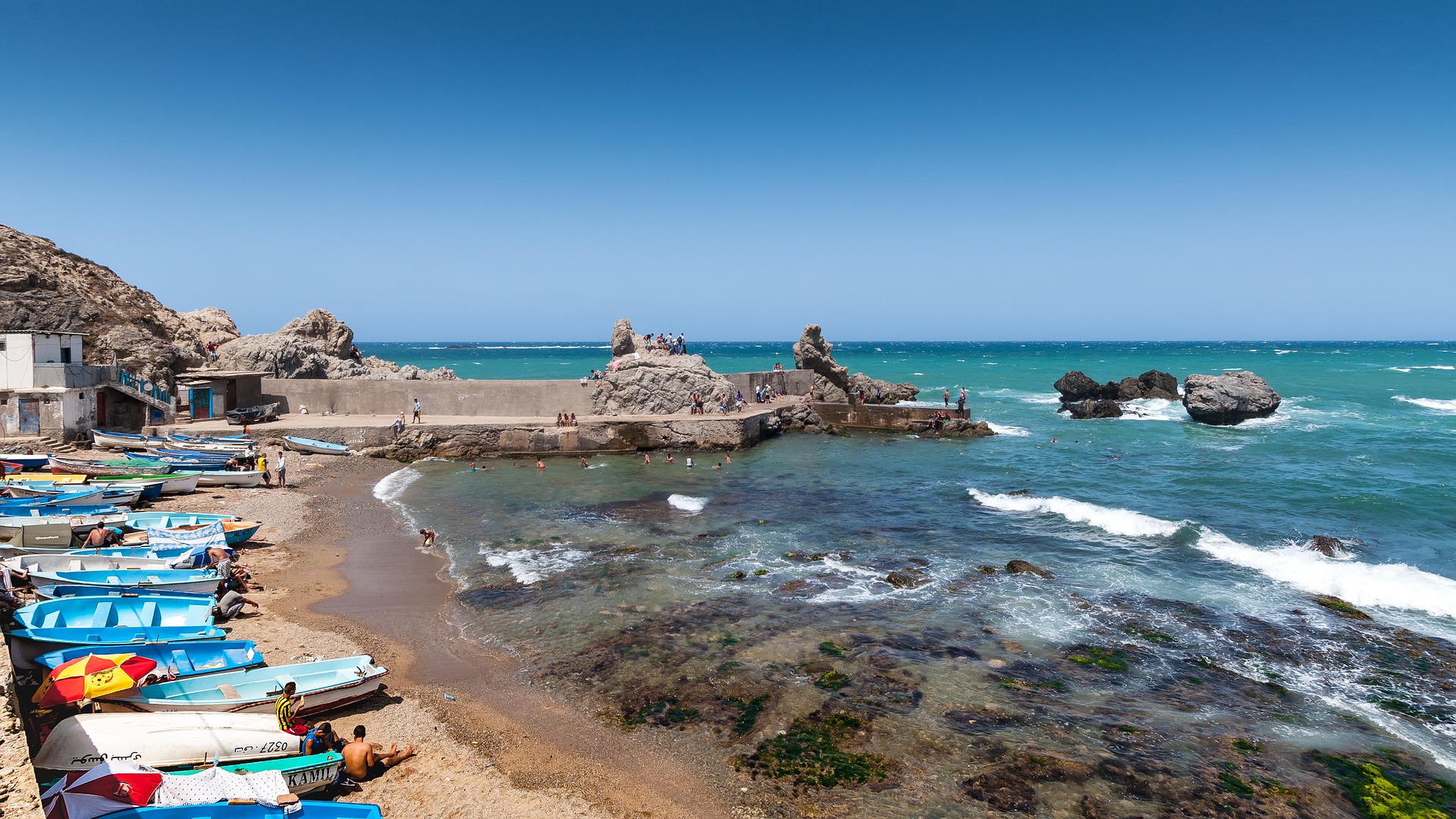
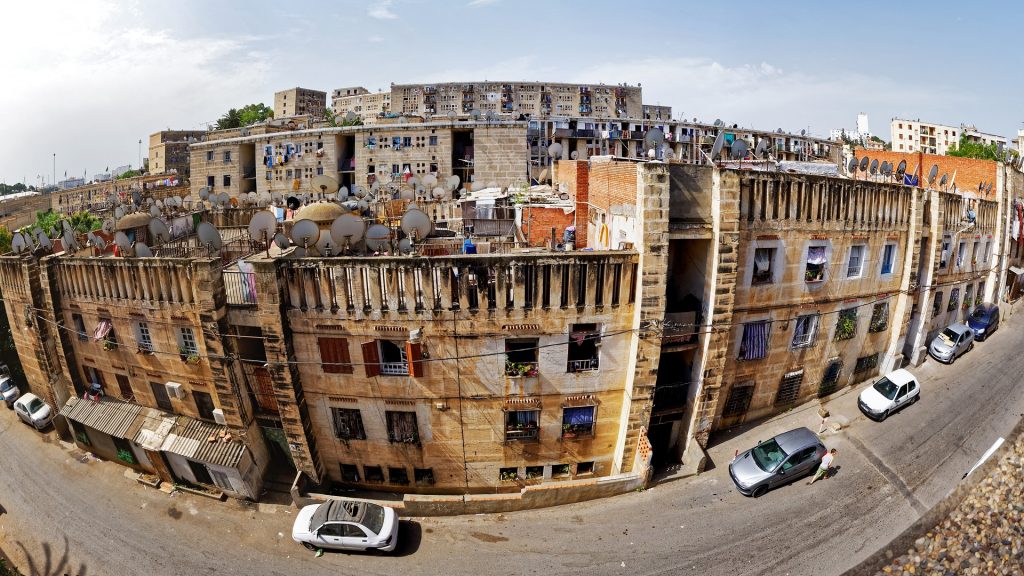
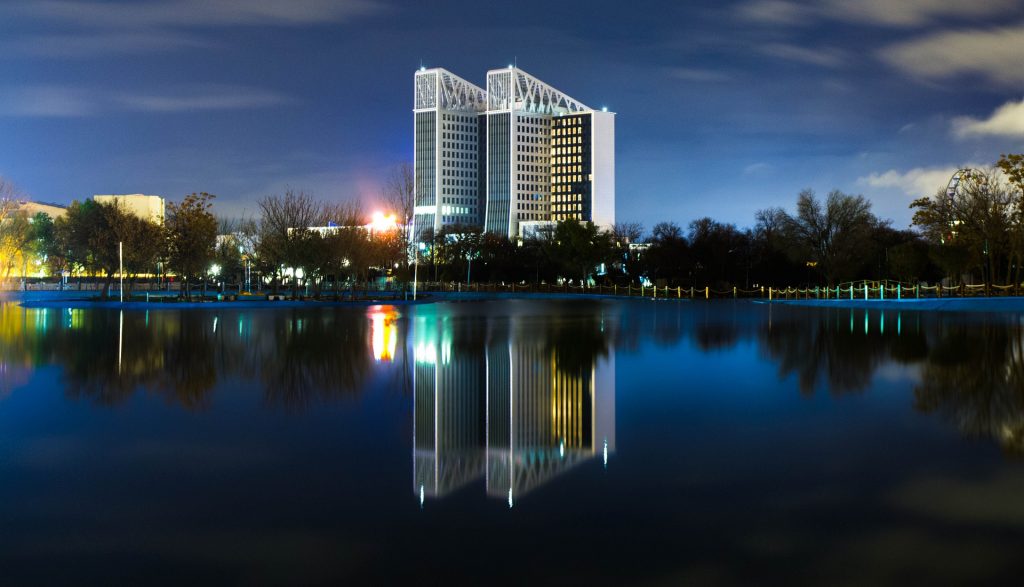
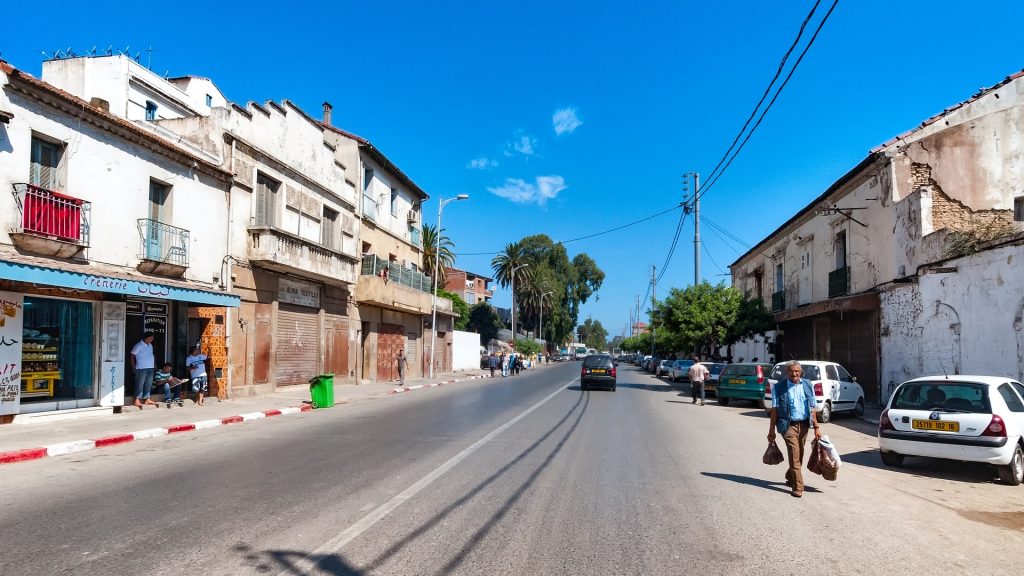
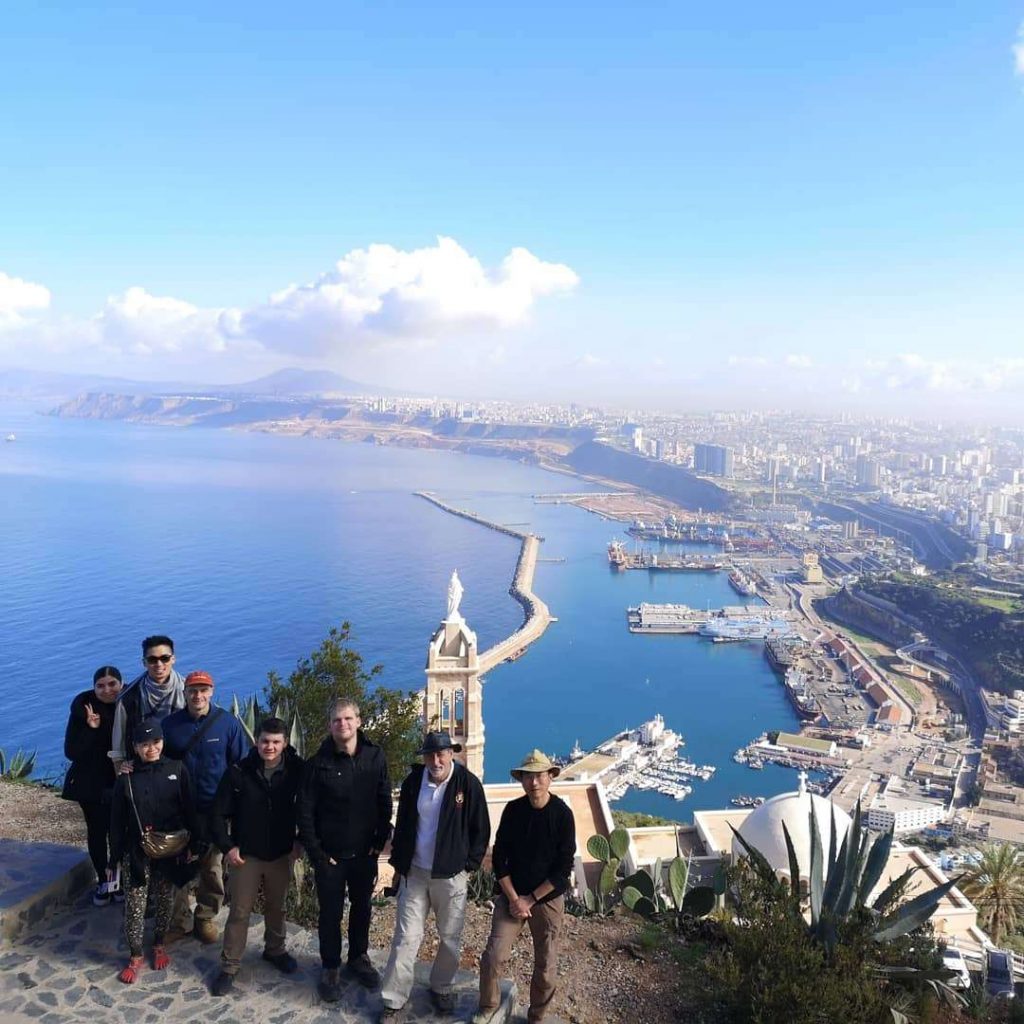
Other activities in Algeria
